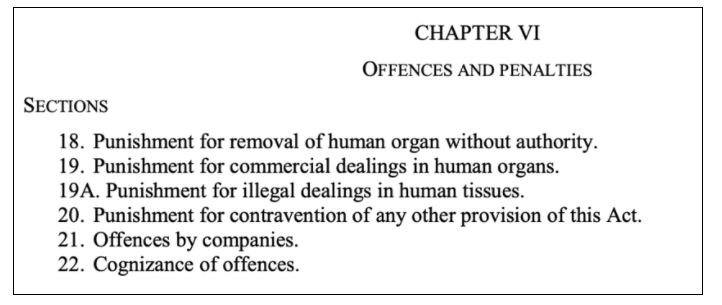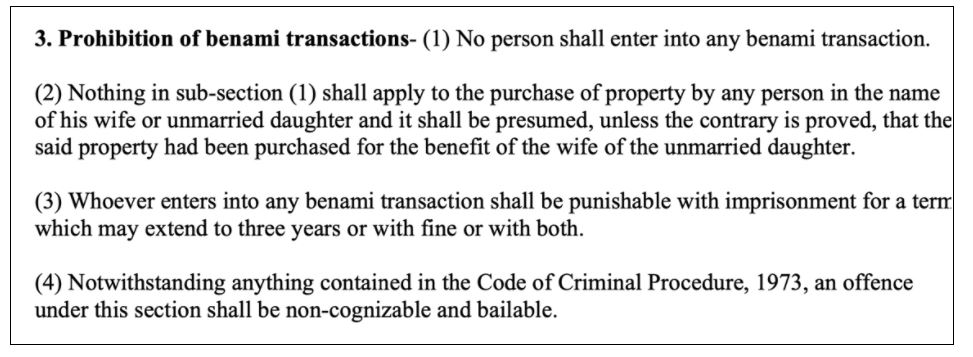The NCRB’s Crime in India report categorizes crimes that fall under provisions of the IPC and those that fall under provisions of Special & Local Laws (SLL). SLLs are enacted to deal with specific subjects. However, data from the NCRB reports over the years indicates that only single-digit cases are being registered under several special & local laws. Here is a review.
The cognizable crimes in India are broadly categorized into Crimes that fall under the Indian Penal Code (IPC) and those that are registered under provisions of Special & Local Laws (SLL). Special Laws are those that deal with a specific subject enacted by the Parliament while Local laws are those local to a region or a state.
Among SLL under which crimes are registered, there are specific laws that traditionally report high crime numbers. As per the data available in NCRB’s Crime in India (CII) report, it can be ascertained that most of the crimes are registered under – The Dowry Prohibition Act, POCSO Act, Arms Act, Prohibition Acts of states, Excise Act, COTPA, Electricity Act, Motor Vehicle Act, etc. However, there are other SLL under which very few cases are registered over the years. In this story, we look at some of these SLL under which few cases are registered.
About one-third of the SLLs listed in the NCRB report have less than 100 registered crimes
In NCRB’s CII-2020 report, SLL related crimes were listed under 64 specific crime heads. The rest of the crimes under other SLLs are listed under the broad categories of – ‘City/town Police Acts’, ‘Other State Local Acts’ and ‘Other SLL Crimes’.
Among the SLL crime heads for which the data is provided, less than 100 cases are registered in 2020 for 21 of these heads. The trend during the five-year period of 2016 to 2020, suggests that the numbers for most of these 21 SLL crime heads remained low. In fact, under 8 of these SLL crime heads, only 0-2 cases were registered in 2020. These have reported largely single-digit numbers in the last five years barring few exceptions.
In specific years, not a single crime is reported under, The Protection of Civil Rights Act against STs (2017), The Benami Transaction (Prohibition) Act (2017 & 2019) and The Telegraph Wire (Unlawful Possession) Act (2018 & 2020).
The lower numbers in some cases could also be due to the ‘Principal Offence Rule’ that NCRB follows for the classification of crime. What this means is that among many offences registered in a single FIR case, only the most heinous crimes (maximum punishment) will be considered as a counting unit. Hence, there is a likelihood of some IPC/SLL cases getting underreported as they are hidden under major IPC crimes.
Further, the information available in NCRB’s CII report is based on the crimes that were reported and registered with the law enforcement authorities. This might not reflect the true incidence of these crimes. The same is also true for some of the SLL crimes. While the numbers reported for these crimes are lower, the actual incidence could be more.
The Transplantation of Human Organs Act
The Transplantation of Human Organs & Tissues Act (THOA), was introduced in 1994. Major amendments were made to this act in 2011. The act deals with transplantation or donation of Human organs and lays down the regulations surrounding it. It also specifies the offences and the penalties relating to violation of any of the provisions in human organ transplantation and donation.

As per NCRB’s CII report, only one crime was reported in each of the years of 2019 & 2020 under this Act. In 2018, the number was three. This data is in contrast with reports regarding the menace of illegal organ trafficking. While conclusive and the latest data is not available, the information in a few of the older reports shows a high incidence of illegal organ trafficking.
A 2004 report says that the number of kidney transplants in India is higher than the number of live donors. This could indicate procurement through illegal means. However, this is not reflected in the crimes being registered. Such an observation is also corroborated by a few other estimates and reports. As per a WHO estimate, around 2000 Indians sell a kidney every year. As per another study paper, limitations of THOA have resulted in the emergence of illegal trade in organs.
The data in these reports and the number of cases registered under this act raise serious questions on the efficacy of THOA.
Prohibition of Benami Property Transactions Act, 1988
Prohibition of Benami Property Transactions Act, 1988 was introduced in 1988 to prohibit Benami transactions and the right to recover the property held as Benami. A Benami transaction implies any transaction in which property is transferred to a person for an amount/consideration paid by another person. The act was further amended in 2016.

After the 2016 amendment to this act, only four cases were filed under this act between 2017 and 2020. Three of them in 2018 and one in 2020.
The Income Tax authorities and law-enforcement agencies have time & again issued advisories and warnings to not indulge in Benami transactions. While reliable information is not available to the extent of Benami transactions, several instances of Benami transactions are common knowledge among the public. The number of cases being registered as provided in the NCRB report does not seem to reflect the ground reality in terms of the actual number of offences. Such a low number of cases defeats the very purpose of having a special Act to curb Benami transactions.
Indecent Representation of Women (Prohibition Act)
The trends over the last five years show a decline in the number of cases booked under this act. In 2020, 12 cases were registered compared to the 38 cases in 2016. The act was introduced in 1986 and prohibits indecent representation of women through advertisements & other works.
The law defines “indecent representation of women” and explains what constitutes indecency or obscenity.

Despite the detailed definition provided for what constitutes indecency, the interpretation could vary. Furthermore, the idea of what constitutes indecency might have also evolved over the years. The declining trend in the numbers indicates that the law might not be in tune with the current times and might require a review.
The emergence of online/social media might have resulted in few offences being categorized as cybercrimes. In an earlier article, we have highlighted that there is an increase in Cyber Crimes against women. Among them, nearly 70 % are related to “Publishing of Transmitting of Sexually Explicit Material.”
Further, few of the other ‘Special & Local laws’ where the numbers provided in the NCRB report could be lower than the actual numbers include.
- The Prevention of Food Adulteration Act
- Chit fund Act
- The Pre-Natal Diagnostic Techniques (Regulation and Prevention of Misuse) Act
- The Medical Termination of Pregnancy Act
- The Protection of Civil Rights Act against STs
The Telegraph Wire (Unlawful Possession) Act was among the Obsolete law recommendations
In 2014, the Law Commission of India in its interim report provided a list of recommendations on archaic laws that need to be repealed. One of our earlier stories on archaic laws has more details. The Telegraph Wire (Unlawful Possession) Act was also recommended to be considered for repeal.
The act was brought in for regulating the possession of telegraph wires of specific dimensions. One of the recommendations was to combine this Act with the Indian Wireless Telegraphy Act, 1933.
Between 2017 & 2020, only 4 cases were registered under this act. A related act, the Indian Telegraph Act, introduced in 1885 might also sound archaic in terms of technology. However, the definition of the Telegraph provided in this act is quite extensive.

The act lays down several rules regarding different aspects of transmission of information, which are relevant in current times. One such loophole in the law is being cited regarding the recent issue with Pegasus software. As per Section 5(2), the government can intercept calls in certain situations like the interest of sovereignty and integrity of India, security, relations with foreign states, etc.

Need to review the need & implementation of certain Special & Local Laws
The Special & Local laws are enacted to address specific crimes. Lower crimes numbers in a few of these laws raise questions over the need for such laws in current times as well as the status of their implementation. Whatever be the case, there is an urgent need to review the need for a few of these laws and their implementation in terms of registering crimes in specific areas.
Featured Image: Special & Local Laws


